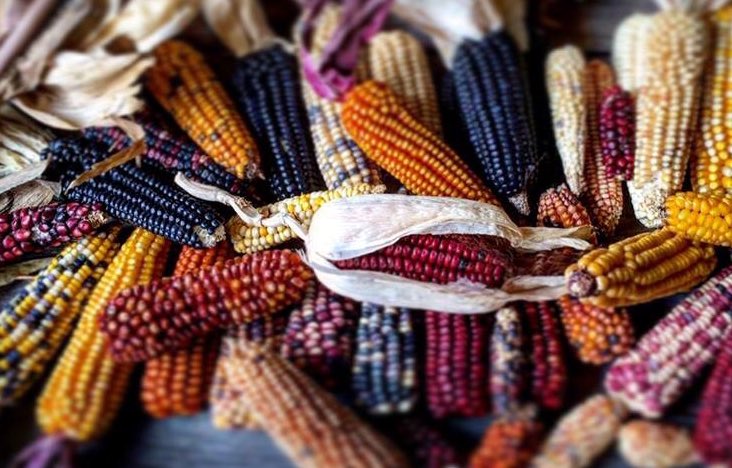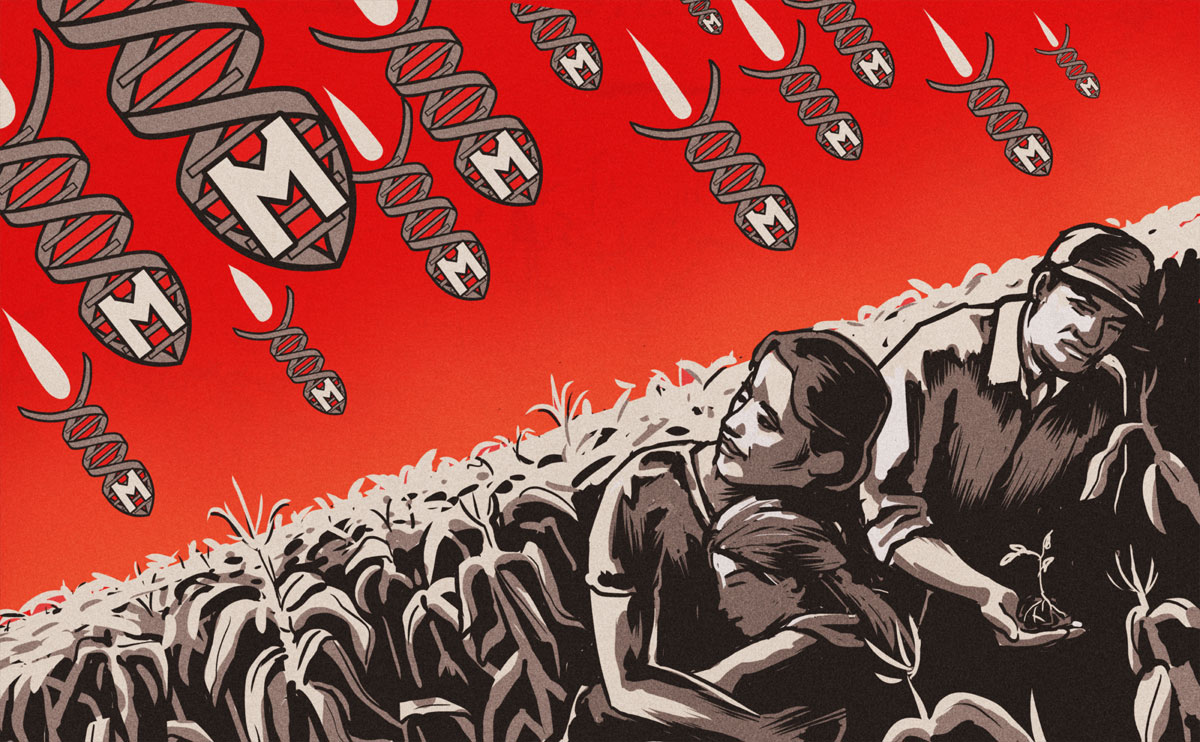Native Corn In Mexico Takes On Big Ag in Epic Environmental Justice Battle, Trailblazing A Path For Collective Actions
David Nahmias, Law Fellow
In Mexico, an epic battle wages in the courts—a broad coalition of farmers, scientists, and consumer advocates is taking on four multinational agrochemical giants and the Mexican government to protect native corn from genetic contamination and modification.
For the Mexican people, corn is a defining feature of their cultural heritage, history, and cuisine. Nobel Prize Winner and famed Mexican poet Octavio Paz once said that, “the invention of corn by Mexicans is only comparable to the invention of fire by man.”
Indigenous peoples in what is now Mexico cultivated the first strains of corn thousands of years ago. The principal ingredient for tortillas, tamales, pozole, and dozens of other culinary staples, corn is now the country’s largest crop in terms of production and consumption, and Mexicans will consume some 44.7 million metric tons of it this year. Corn also figures prominently as a major factor in the U.S.-Mexico trade and immigration debates.
Indigenous peoples in what is now Mexico cultivated the first strains of corn thousands of years ago.
Yet, despite native corn’s enormous importance, in 2009 the Mexican government began granting permits to multinational corporations to cultivate genetically modified corn. Environmental, health, and social justice advocates denounced the move. In 2013, a diverse coalition made up of fifty-three individuals and non-governmental organizations representing scientists, small farmers, beekeepers, consumers, and human rights activists banded together to file an innovative class action lawsuit to halt further genetically modified corn cultivation. Their case, the Collective Action Protecting Native Mexican Corn From Genetic Modification, will make critical law for environmental and social justice in Mexico.
The plaintiff coalition alleges that introducing genetically modified corn into Mexican agriculture threatens the diversity and integrity of native corn strains, which could in turn endanger the livelihoods of low-income family farmers, small producers, and beekeepers who depend on selling native corn and its derivative products. They also argue that genetically modified corn cultivation harms the ability of consumers and the general Mexican public to continue enjoying Mexican cuisine with its myriad corn products—a tradition that UNESCO has recognized as an Intangible Cultural Heritage.
The collective is suing Monsanto, Syngenta, Dow, and Pioneer/DuPont.
The plaintiffs in this class action lawsuit seek a court order declaring that large-scale introduction of genetically modified corn violates Mexico’s 2005 Genetically Modified Organism Safety Law, the fundamental rights to nourishment and health, and the rights of indigenous peoples, as well as assorted international laws. The suit also seeks an injunction forbidding the future planting of genetically modified corn and rejecting all future permit application to allow the cultivation and spread of such corn. They named as defendants the multinational corporations Monsanto, Syngenta, Dow, and Pioneer/DuPont, along with the federal Secretary of Agriculture and Rural Development and the federal Secretary of the Environment and Natural Resources.
The Impact Fund is pleased to have awarded two grants to support this collective action, most recently through our Just Earth funding initiative. The non-profit organization Alternativas y Procesos de Participación Social A.C. (Alternatives and Processes for Social Participation), one of the members of the plaintiff coalition, serves as our local partner in the case. The organization’s executive director, Raúl Hernández Garciadiego, praised the lawsuit and the work of the plaintiff coalition. “Given that genetically modifying corn will cause irreversible contamination of our thousand-year-old genetic patrimony, preserving it requires judicial action so that our next generations can enjoy their rights to food, health, and a healthy environment.”
“Given that genetically modifying corn will cause irreversible contamination of our thousand-year-old genetic patrimony, preserving it requires judicial action so that our next generations can enjoy their rights to food, health, and a healthy environment.” - Raúl Hernández Garciadiego
This class action is one of the few known environmental justice-oriented suits initiated to date under Mexico’s relatively new collective action law. As part of major judicial and rule of law reforms, in 2012 Mexico enacted new legal procedures that enabled certain kinds of plaintiffs to file collective actions in federal court. Many of the rules were modeled after the U.S. class action mechanism, but with some key differences. Only certain federal government entities, non-profit member-based organizations, and coalitions with at least 30 members may bring collective action lawsuits, and the suits may only allege consumer, antitrust, or environmental harms. Because of these restrictions, few collective actions have been filed—meaning that the decisions in the Collective Action Protecting Native Mexican Corn From Genetic Modification are especially crucial for future environmental impact litigation in Mexico.
A few months after filing the case in federal court in Mexico City, the judge issued a temporary injunction halting approval of future permits for genetically modified corn cultivation. The case is now slogging its way through the Mexican court system. To date, the parties have filed at least 140 motions, petitions, and appeals to different aspects of the litigation, and the parties are disputing over 150 discrete legal questions. The corporate defendants initially tried to overwhelm the plaintiff coalition through expensive appeals and delays. Yet their hard-nosed litigation tactics have failed to exhaust the collective, which has continued to prosecute its case without worrying about any new or ongoing threats to biodiversity because of the court’s favorable ruling enjoining permits.
The case is pioneering many untested questions around Mexico collective actions. Currently, the parties are litigating discrete procedural questions in the Mexican Supreme Court, and they are awaiting a momentous decision by an appellate court in their constitutional challenge to a decision about the scope of discovery in collective actions. They are also engaging in lengthy evidence gathering.
“This case will set important judicial precedent about the risks and harms to agriculture, biodiversity, and the lives of farmers and consumers posed by using genetically modified organisms.” - René Sánchez Galindo
At its heart, though, the collective action seeks to vindicate the rights of all people in Mexico who consume corn. “This case will set important judicial precedent about the risks and harms to agriculture, biodiversity, and the lives of farmers and consumers posed by using genetically modified organisms,” said René Sánchez Galindo, the lead attorney working on the case.
“Moreover, it will help protect native Mexican corn strains and the biogenetic diversity of corn in its place of origin from all kinds of genetic modification and contamination, ensuring that present and future generations can use and enjoy it.”
The recent change in government in Mexico under President Andrés Manuel López Obrador and a more progressive Congress could pose new opportunities for the collective action. Some lawmakers and agency administrators have indicated their willingness to strengthen Mexican law around genetically modified crops. Mindful of the inherent difficulties in adopting legislation and the power and influence of the defendant private corporations, the plaintiffs are nevertheless continuing their lawsuit.
The Impact Fund is grateful to stand with the dozens of plaintiffs in this powerful collective action to ensure the fundamental rights of all small producers and consumers of Mexican corn.
If you know of other environmental justice impact litigation in the United States, Canada, and Mexico, please alert the Impact Fund!







